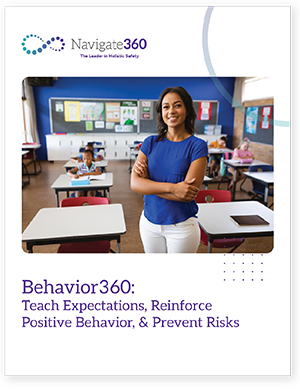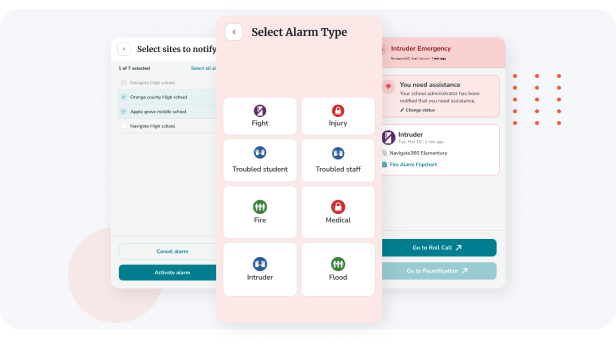Build Success. Inspire Positive Behavior. Empower Every Student
Why Traditional Discipline Falls Short & How a Layered Framework Builds Stronger Students & Safer Schools
Suspensions and detentions don't teach students the skills they need to thrive. Punitive approaches leave educators frustrated, students disengaged, and risks unaddressed.
Behavior360 offers a new path forward. By combining social-emotional instruction, positive reinforcement, and structured risk prevention, this unified framework helps schools create safer, more supportive environments where students learn from mistakes rather than being defined by them.
This eBook explores how Behavior360 empowers schools to move from reaction to prevention with clear expectations, consistent support, and legally defensible processes for detecting risks.

Why Schools Can't Afford to Rely on Punishment Alone
Across the country, schools are facing rising behavior challenges: bullying, absenteeism, vaping, and mental health concerns. Staff are stretched thin, and students are missing out on the supports they need most.
- 1 in 5 high schoolers reported being bullied on school property in the last year (CDC).
- More than 40% of students report persistent sadness or hopelessness, a key risk factor for disengagement and self-harm (CDC).
- Punitive discipline disproportionately affects vulnerable student groups and contributes to higher dropout rates (NCES).
Behavior isn’t just about discipline. It’s about teaching expectations, reinforcing positive choices, and detecting risks before they escalate.
School safety requires a proactive, collaborative approach that involves training, tools, and technology. Provided in partnership with 911Cellular, Navigate360's panic buttons and emergency management platform are designed specifically to help Alabama schools respond to and recover from events with speed, precision, and efficiency.

Be Proactive in Protecting Your School Community
Earlier this year, Alabama introduced legislation requiring schools to provide school employees training for and access to a mobile emergency rapid response system. The bill, HB234, requires employees to have a device that links directly to law enforcement to speed the response time in an emergency. If passed, the law becomes effective October 1, 2025, and stipulates compliance by October 1, 2030.
The law is modeled after Alyssa’s Law, already enacted in other states. Alyssa’s Law is named for 14-year-old Alyssa Alhadeff, a victim in the Marjory Stoneman Douglas High School massacre.
"I was a classroom teacher for 10 years, so I saw all of these different programs come and go without much fidelity. With [Compass Curriculum], we have a library of relevant topics…that students can go through at their own pace."
"It has made a big difference with our behavior schoolwide. Along with PBIS Rewards, we analyze behavior data. We have seen a vast improvement in behavior all over the school and have seen significantly fewer office referrals."
"We are experiencing much success with PBIS Rewards! Everyone is loving it and it is making a positive impact on our school culture."

